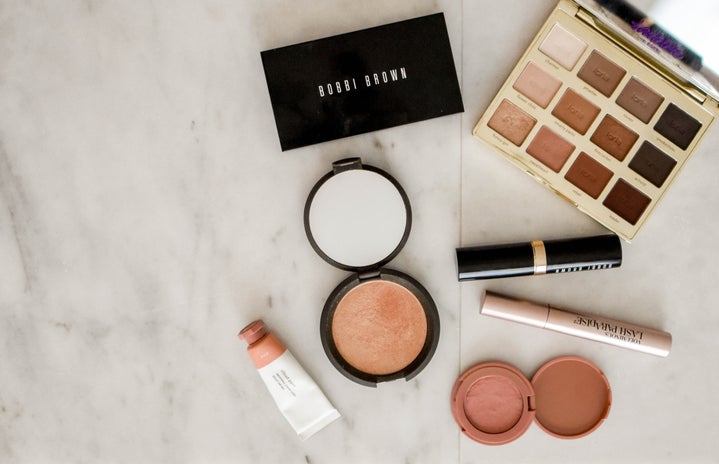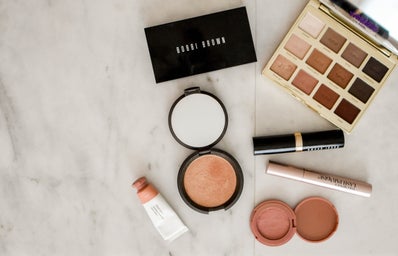Last week, up-and-coming British model, Leomie Anderson, took to twitter to vent her frustration about makeup artists being unequipped to work on her complexion. In her Twitter rant, Leomie highlighted the issues black models face when it comes to hair and makeup in the fashion industry.
A few of Leomie’s tweets
Leomie made it clear that there are still issues within the fashion industry regarding race, as makeup artists had come to work without a full kit that caters to models of a darker complexion. Instead, they had multiple lighter shades and maybe one or two darker ones. She then tweeted, “WE NEED MORE MAKE-UP ARTISTS AND HAIR [sic] WHO ARE COMPETENT WITH ALL RACES BACKSTAGE AT SHOWS.”
Leomie’s Image of the lack of dark shades provided by her makeup artist
Leomie is not the only one to be vocal about her frustration, with Nykhor Paul making the same complaint a few months ago on her Instagram. Even recently, Australian model Ajak Deng quit the fashion industry, and alluded to racial issues playing a part, after she also took to Twitter to complain about Balmain allegedly cutting her from their show due to her being black last year.
Nykhor’s Instagram post calling out ill-prepared makeup artists
Although there is still a long way to go, the fashion world is becoming increasingly diverse and makeup artists need to be able to cope with this change. It’s all well and good that women of colour are featuring more in shows, but that positive is counteracted by the need for them to constantly be providing their own makeup while other fairer models simply have to turn up.
Victoria’s Secret Fashion Show attempted to increase diversity in their models
Additionally, Leomie’s critique is not limited to the fashion industry but is also an issue the cosmetics industry needs to address. Although many high-end brands such as Lancôme and MAC cater to many shades of colour, not everyone wants to be spending £30 on a bottle of foundation or almost £20 on some concealer. As a student, sometimes all I want is a cheap foundation I can use on a daily basis without having to break the bank.
Lancôme’s Teint Idole comes in 18 shades!
Even in an area as diverse of Nottingham, I have struggled to find a drugstore brand that had more than three shades available for women of darker skin shades. Not only is the lack of variety in shades a problem, but makeup brands that do have some darker shades, tend to think women of colour all come in the same tone, resulting in many shades being warm toned and thus appearing orange on women with cooler tones. This is extremely frustrating when you see the other 15 shades available for lighter skin coming in an array of cool, neutral and warm tones.
Different shades for lighter complexions provided by MaxFactor
Although there appears to be more brands catering to women of colour in countries like America, with the creation of brands such as IMAN Cosmetics and Black Opal Cosmetics, this doesn’t seem to be replicated in the UK. Many of the shades provided in America aren’t provided in the UK when there clearly is a market for it, leading to many females having to resort to more expensive brands.
Unfortunately these shades aren’t always available in the UK
All-in-all, although there has been an improvement over the years geared to including women of colour, Leomie’s recent tweets highlight that there are still problems that need to be addressed. Her tweets garnered lots of attention, with the likes of VOGUE UK writing about them. Hopefully, this will push both the fashion and cosmetics industries to make more of an effort to combat these issues.
Edited by India-Jayne Trainor
Image Sources:

